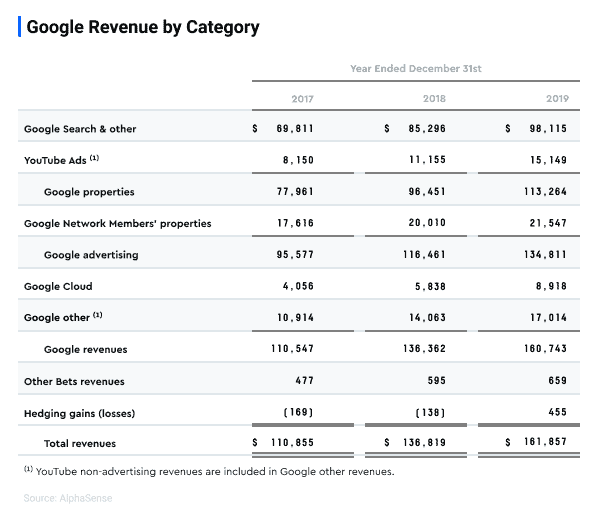Sundar’s in the spotlight.
The disposition of Google’s new CEO Sundar Pichai, who was promoted to the tech giant’s top spot in December, will be central to deciphering the search giant’s fortune. The big question for investors: just how shareholder-friendly will Google’s new leader be, and what does that translate into when it comes to concrete action?
And investors are expecting big things from Pichai. Shares rallied following his appointment, putting the company into the ranks of elite $1 trillion market cap plus tech giants. When Pichai succeeded founders Larry Page and Sergey Brin, we speculated that a more shareholder-friendly leader at the helm would play a major role in increasing the company’s value. Turns out we were onto something: Shares of Google rallied 12% to $1,480 following the roughly six weeks following Sundar’s appointment.
Here are the most important items investors need to know as they asses Pichai’s ability to deliver:
A strong focus on Google’s outperformance is central to Pichai’s incentives – but he’s already rich:
Pichai’s compensation will be closely tied to Google’s stock price performance relative to the S&P 100, according to an 8K filed by the company on December 17. Pichai will receive a $2 million annual salary, but two tranches of Performance Stock Units (PSUs) up to $45 million each which will vest in accordance with relative stock performance. With other grants totaling $120 million, that makes a sizable 38% of Pichai’s compensation dependent on stock performance.
That could lead to markedly different priorities than Google’s billionaire founders, who sometimes prioritized the company’s social impact over stock performance. That famously included the company’s irreverent “Don’t Be Evil” motto and taking the company public through a novel IPO that was aimed at making it accessible to individual investors but was widely seen as undervaluing the company.
But investors should keep in mind that Pichai is already wealthy. Pichai has already been granted nearly half a billion in restricted stock since 2014 ($250 million in 2014, $100 million in 2015, and a $200 million grant in 2016) meaning that financial incentives alone could be muted, investors at Deutsche Bank said in a research note.
In fact, Pichai reportedly turned down another large stock grant in 2018 because he felt he was compensated well enough and his compensation could be seen as controversial.

Investors will be watching closely to see what Pichai does with Google’s Other Bets:
Google’s Other Bets Unit – a sprawling group of ventures that ranges from self-driving cars to drones – is a focus for investors. The unit is another legacy of Google’s founders who at times ran the company more like a college campus than a profit-maximizing corporation (employees spend one day a week pursuing side-projects, for example).
It’s not surprising that this group is a huge cash drain. Other Bets drove revenues of $659 million in 2019 but registered an operating loss of $2.03 billion. Pichai may move to bring more discipline to Google’s Other Bets – for symbolic as much as financial reasons.
Already, he has pointed to Verily – Google’s Life Sciences Ventures – as a model for Other Bets. That unit has received funding from major outside investors like Silver Lake Partners and Temasek and has its own board of directors. This has spurred speculation from investors that Pichai may seek to raise external capital and form partnerships for more Other Bets units in a similar fashion.
Transparency is a major investor demand:
Google disclosed revenue at a more granular level than ever on its fourth-quarter conference call. Investors have long been clamoring for transparency so they can better value and assess the progress of Google’s business, and Pichai is delivering. (For the year, YouTube ads came in at $4.72 billion, up from $3.61 billion, Google Cloud came in at $2.61 billion, up from $1.71 billion, and Google Search & Other came in at $27.19 billion, up from $23.32 billion).
What to do with all that cash?
Google repurchased $6.1 billion in stock in the fourth quarter — a record for the company, and higher than the third quarter’s $5.7 billion. The company announced a $25 billion share buyback with its second-quarter earnings, which brings the total purchased in the second half of 2019 to $11.8 billion. But the company still has $115 billion of cash on its balance sheet. Investors will cheer an aggressive execution of the existing buyback program as well any indication that the company may increase it in the future.
With Pichai at the helm, investors are hoping for a mature, disciplined leadership approach that focuses Google more on shareholders than its own pet projects. Pichai’s stock compensation has been structured to reflect precisely that. But with shares up sharply since his appointment, just how aggressively he steps into this market mandate will play a large role in determining how enthusiastically investors support the company moving forward.



